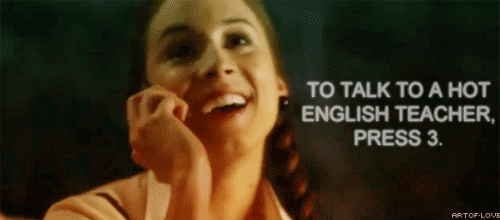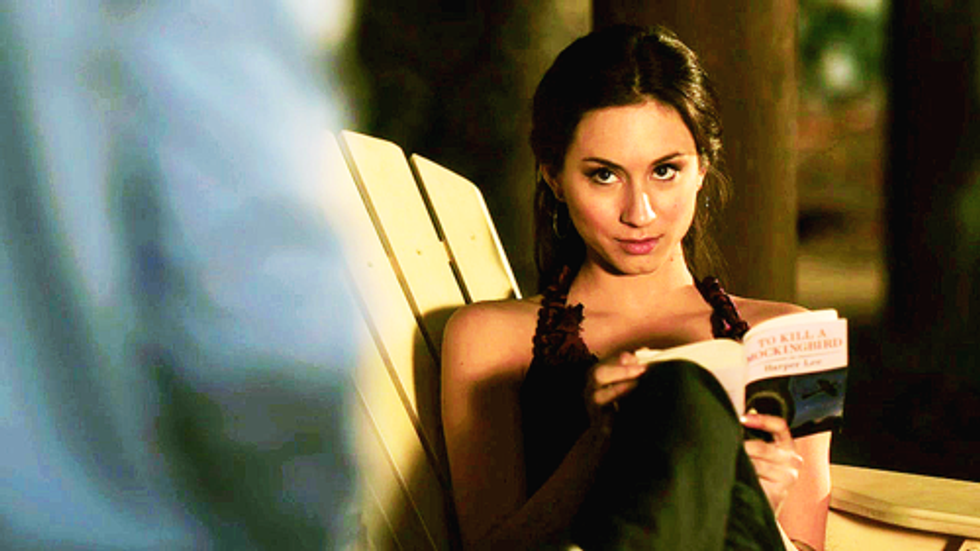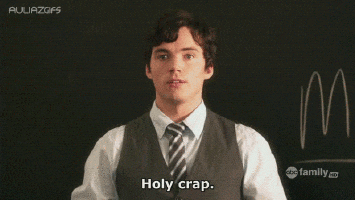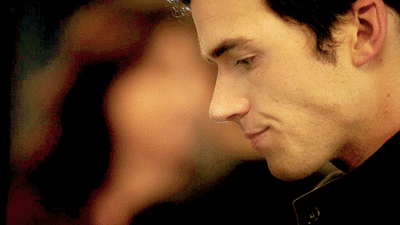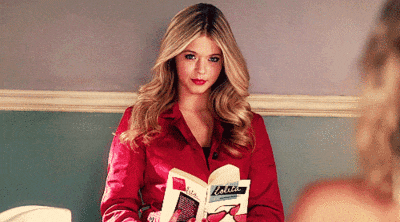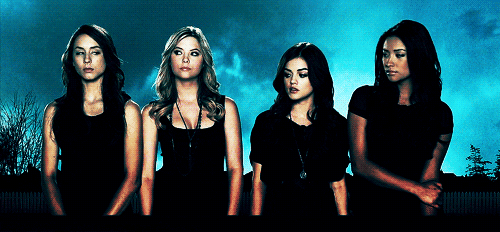I am an English and media studies major, so when novels are referenced in television shows; it’s like a dream. I get way too much enjoyment from piecing together why they picked this particular book and the significance of the allusions. At times, the references are subtle and sometimes go unnoticed. Other times, the writers are hitting the audience over the head with a theme that they don’t want them to miss. One show that does both is "Pretty Little Liars." It seems that some references are meant to be widely known, but if you are better read, you begin to understand the show a little better.
The first season was littered with literary references. They used the character of Mr. Fitz, who is not so hard on the eyes, to deliver a lot of these literary references (his last name is literally Fitzgerald). The first book that they used to deliver a theme was "To Kill A Mockingbird," by Harper Lee. This book is a classic and will most likely be understood by most high school viewers. The novel sets up a theme of loss of innocence which is sort of what is happening when A is revealing the Liars' secrets, or at least that is what is happening to the viewers innocent view of the characters. This novel is mentioned throughout the first view episodes of the series. Mr. Fitz uses it to pick an argument with Aria about her parents’ relationship. The references to Lee’s novel linger throughout the series mainly through the institution of the Radley Sanitarium. It shares the name of the character Boo Radley and stands as a symbol for those misunderstood and abject from society, a subtle but effective allusion.
Another very evident allusion is "The Great Gatsby," by F. Scott Fitzgerald. It is not only the real name of Mr. Fitz, but becomes one of the books that he assigns for his class to read. It is featured prominently in the episode where Noel Kahn tries to blackmail Mr. Fitz with his relationship with Aria in order to raise his essay grade. This is a clear comparison to the book's theme of the corruption of the American dream. In the show, it functions more as a theme of the corruption of the good by people such as Noel. In the scene where this happens, Fitz is literally writing the corruption of the American dream on the board. This is an instance where the writers are trying to hit you over the head with a theme and make sure you get it.
Other references that are made are more subtle and may only be noticed and connected by a few well-read readers. One of these instances is the reference to "Madame Bovary," by Gustave Flaubert and its connection to the plot. In one episode, Aria is asking a substitute teacher about Mr. Fitz and the sub is writing the lines, “Is Emma responsible for her own downfall or is she a product of her environment?” While this will have no significance to those who are not familiar with the text, to those who are, it will parallel the several doomed relationships that Emma Bovary had in the novel with the doomed relationship of Aria and Ezra. I have only read this novel this past semester and when re-watching the series noticed the reference. While this reference may usually go unnoticed, when it is, it makes you appreciate the details that the writers put into every detail of a scene.
One literary allusion that confuses me is the allusion to "Lolita," by Vladimir Nabokov. In the show, Allison uses the name Vivian Darkbloom as an alias, which is one of Nabokov’s aliases that he used to write himself into "Lolita." I can see the connection between Allison and Lo being the “wayward child” who are viewed as trouble and then overpowered and ruined by outside forces, but I am not sure if everyone would make that connection. A lot of people view "Lolita" as a novel about an old guy forcibly seducing a young girl, but in Nabokov’s novels things should not be taken at face value. He plays games and challenges you to find the real themes and motives behind his novel. The connection between "Pretty Little Liars" and "Lolita" may not be with the novel but actually with the author. Nabokov and Allison both like to play games and things are never quite as they seem.
At times I question whether the more abstract novels that are referenced exclude some viewers; but after re-watching, it was exciting noticing things that I hadn't before. When I first watched the first season of "Pretty Little Liars," I was in eight grade. Six years later, I am able to re-watch and continue to enjoy it.




